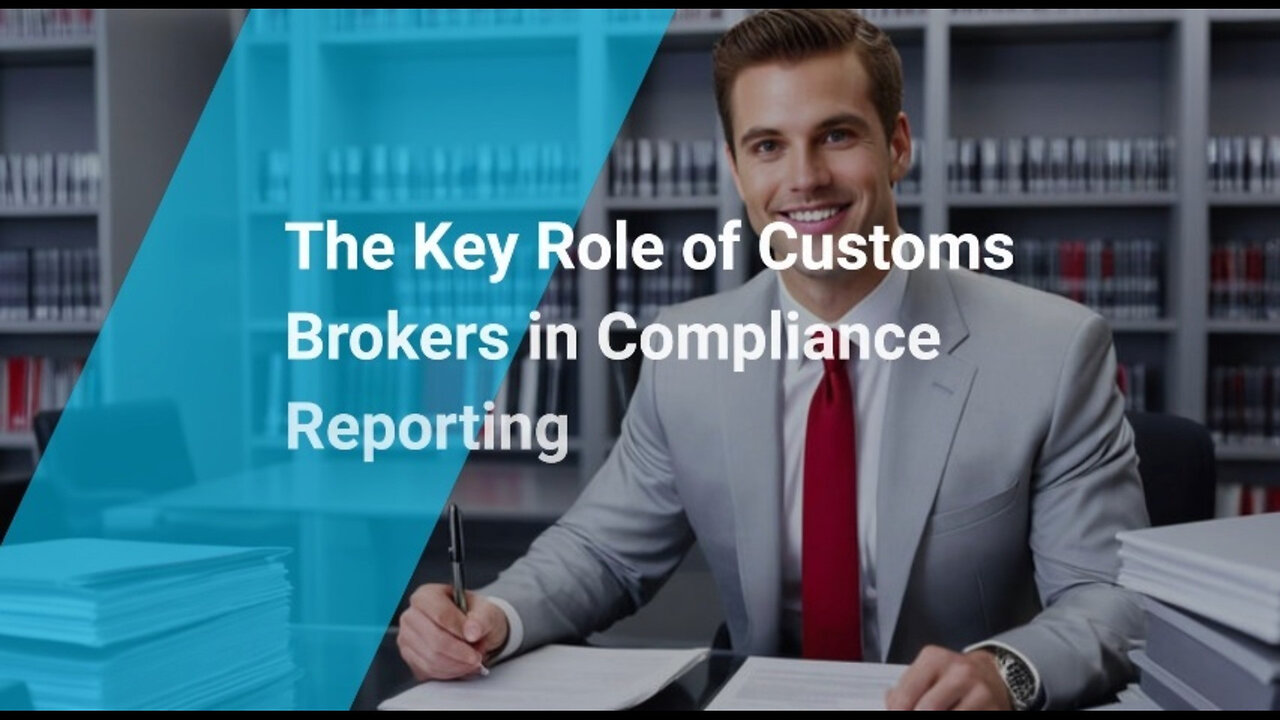Premium Only Content

Unlocking Customs Compliance: The Essential Role of a Customs Broker
ISF Template | 562-453-7357 | isf@isftemplate.com | www.isftemplate.com
This response provides a deep dive into the essential role of a Customs Broker in Customs Compliance Reporting. It discusses the responsibilities of a Customs Broker, including Customs Compliance Reporting, documentation preparation and management, classification and valuation, Importer Security Filing (ISF), communication and liaison with customs authorities, legal compliance and risk management, and continuous professional development. The importance of accurate and timely submission of various documents and information required by customs authorities, as well as the role of Customs Brokers in preventing non-compliance and mitigating risks, is emphasized. It concludes by highlighting the commitment of Customs Brokers to ongoing education and providing high-level service to their clients.
#usimportbond #isfcustomsbroker #uscustomsclearing #isfentry
Video Disclaimer Here: This video is designed for education and is unaffiliated with US government bodies.
00:17 - Customs Brokers are essential in facilitating smooth and efficient customs clearance processes for importers by navigating complex regulations and rules set forth by customs authorities.
00:40 - Customs Compliance Reporting is a key responsibility of Customs Brokers, involving accurate and timely submission of various documents and information required by customs authorities to ensure compliance and minimize penalties and delays.
1:27 - Customs Brokers are responsible for accurate classification and valuation of goods, ensuring correct Harmonized System (HS) codes and declared values in compliance with customs regulations.
3:06 - Continuous professional development is crucial for Customs Brokers to stay updated with industry trends, regulations, and technologies, enabling them to provide the highest level of service to their clients in international trade.
-
 LIVE
LIVE
Major League Fishing
5 days agoLIVE! - Fishing Clash Team Series: Challenge Cup - Day 4
110 watching -
 1:03:42
1:03:42
Crypto Power Hour
2 hours agoWhat Coins Are The Backbone of The New Digital Revolution?
6.36K6 -
 LIVE
LIVE
LFA TV
4 hours agoLFA TV ALL DAY STREAM - WEDNESDAY 8/27/25
5,208 watching -
 1:22:55
1:22:55
Game On!
19 hours ago $2.62 earnedBREAKING NFL NEWS: Taylor Swift and Travis Kelce Are Engaged!
39.3K12 -
 41:04
41:04
Coin Stories with Natalie Brunell
1 day agoCooking, Culture & Crypto: Norma Chu’s Food Empire Turns Bitcoin Treasury
35.4K -
 LIVE
LIVE
JuicyJohns
1 hour ago $0.15 earned🟢#1 REBIRTH PLAYER 10.2+ KD🟢
34 watching -
 1:21:19
1:21:19
JULIE GREEN MINISTRIES
3 hours agoDIRTY POLITICIANS WILL BE ARRESTED AND REMOVED FROM POWER
90.3K211 -
 LIVE
LIVE
GritsGG
2 hours agoWin Streaking! Most Wins 3485+ 🧠
26 watching -
 1:02:09
1:02:09
The Confessionals
22 hours agoThe Supernatural Proof You Can’t Ignore (When Angels and Demons Showed Up) | Lee Strobel
50.7K28 -
 15:24
15:24
Degenerate Jay
23 hours ago $1.10 earned5 Best Moments In Batman: Arkham Asylum
31.7K1